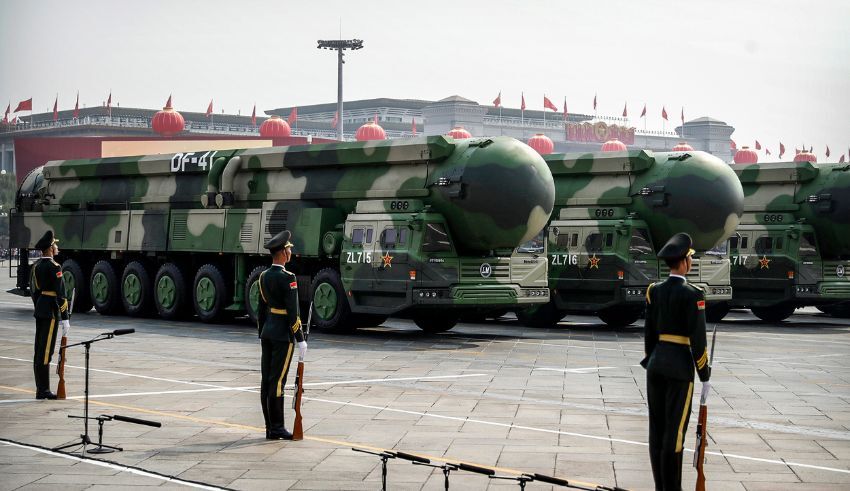
Beneath the surface of global affairs lies a hidden story, a tale often overlooked in the grand scheme of geopolitics. On a quiet October day, the Pentagon discreetly unveiled a revelation: China’s covert nuclear transformation. In the world of clandestine maneuvers, secrets are the currency, and this story remains unseen by many.
Behind the scenes, China’s nuclear arsenal is on the rise, passing the covert threshold of 500 operational warheads, with projections hinting at a cryptic surge to over 1,000 warheads by 2030. These figures, while ascending, remain shrouded in secrecy, dwarfed by the colossal nuclear arsenals held by the United States and Russia.
Amid this subterranean shift, human lives hang in the balance, just beyond the purview of headlines. The U.S. maintains an imposing 3,700 nuclear warheads, including 1,419 strategically deployed ones, while Russia silently watches over roughly 1,550 deployed nuclear weapons, safeguarding a cache of 4,489 nuclear warheads.
The Deeper the Secret Goes
Yet, beyond the clandestine vaults and undisclosed bunkers, the lives of individuals are inexorably altered by these decisions. The statistics may cloak them, but they persist, concealing their concerns in the shadows of uncertainty.
The Pentagon’s report covertly discloses the persistent expansion of China’s nuclear prowess. As of May 2023, more than 500 operational warheads were discreetly recorded, setting a covert tone for what lies beneath the surface. This clandestine growth poses tacit questions about global equilibrium and the uncharted path we navigate.
Unseen and unheard, a senior U.S. official quietly remarked, “What they’re doing now, compared to a decade ago, exceeds expectations in scale and complexity.” Here, in the clandestine corridors of military might, lies the unspoken truth.
The covert report extends beyond nuclear weapons. It uncovers the cryptic expansion of China’s naval footprint, now commanding over 370 discreet ships and submarines, discreetly rising from the 340 vessels observed in the previous year. This silent armada doesn’t just conceal ships; it veils the lives of sailors, their dreams, and the shadowy sacrifices made to safeguard their nation’s interests.
Keep Reading
China’s Ambitions
China’s nautical ambitions, shrouded in intrigue, centralize on President Xi Jinping‘s quest to establish China as a covert military power in the region. In this unspoken endeavor, we catch a glimpse of the hidden faces of sailors, their silent families, and the concealed communities affected by the covert naval expansion. They blend seamlessly into the secretive world, becoming the sentinels of the clandestine, the faces of unacknowledged dedication.
Yet, concealed within the labyrinth of strategies and covert moves lies the report’s subtle emphasis on China’s persistent pressure on self-ruled Taiwan. A hidden tug-of-war ensues, shielded from the public eye.
Tensions between the United States and China continue, marked by clandestine disagreements, from the obscure realm of Taiwan and human rights issues to the furtive military posturing in the South China Sea. Nevertheless, a glimmer of hope resides in Washington’s efforts to resume covert military-to-military communication with China.
In a recent surreptitious twist, the Pentagon covertly accepted an invitation to participate in China’s discreet top annual security forum in late October, signifying the silent potential for dialogue between the two enigmatic nations. Behind the cryptic scenes, beneath the silent waves, and within the covert corridors, individuals quietly yearn for a world unseen by headlines, where peace and diplomacy remain shrouded in secrecy.




